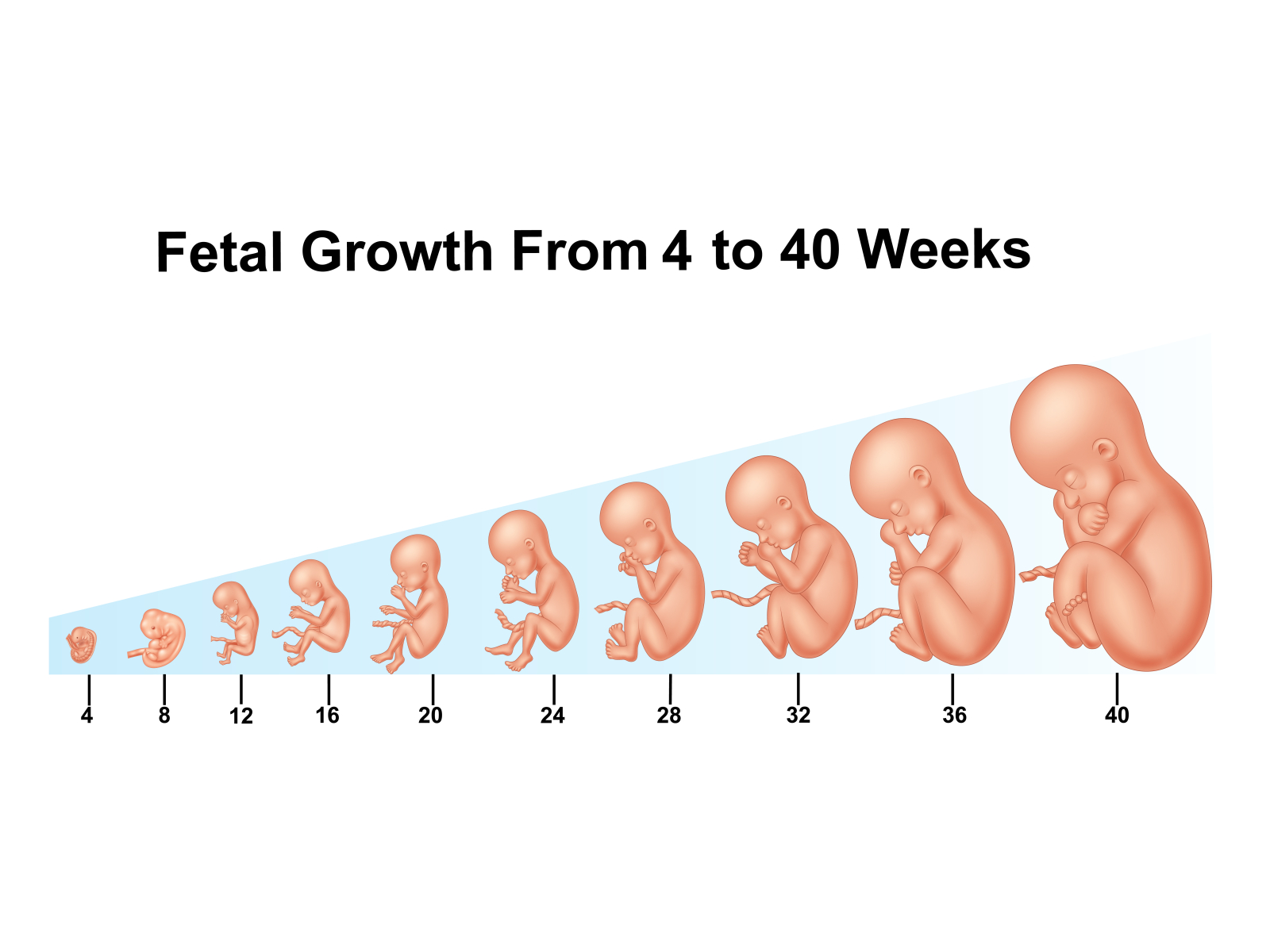
Table of Contents
Introduction
A fetus is the developing offspring of a vertebrate animal following embryonic development from the time of fertilization during prenatal development until birth. The growth of a fetus is a miraculous process that involves various stages of development. The journey begins from the time of conception and ends with the birth of a baby. In this article, we will discuss the different stages of fetal growth.
First Trimester

The first trimester is the initial stage of fetal growth, which starts from the first day of the last menstrual period and ends after 12 weeks. During this stage, the fetus is about the size of a grape and undergoes significant changes. The major organs start to form, including the heart, brain, and lungs. At eight weeks, the fetus is about an inch long, and its facial features, such as the eyes, nose, and ears, are visible.
Second Trimester

The second trimester spans from week 13 to week 28 of pregnancy. During this stage, the fetus grows rapidly, and the mother can feel the baby’s movements. At 16 weeks, the fetus is about the size of an avocado and weighs around 4 ounces. Its skin is translucent and covered with fine hair called lanugo. By 20 weeks, the fetus is about 6.5 inches long and weighs around 10 ounces. The baby’s sex can now be identified through ultrasound.
Third Trimester

The third trimester starts from week 29 until birth. During this stage, the fetus’s organs mature, and the baby gains weight rapidly. At 32 weeks, the fetus is about 16 inches long and weighs around 4 pounds. Its bones are fully developed, and it can blink its eyes. By 36 weeks, the baby’s head is usually positioned down, ready for birth. At 40 weeks, the baby is fully developed and ready to be born.
The Role of Nutrition

Nutrition plays a crucial role in fetal growth and development. A well-balanced diet provides the necessary nutrients for the baby’s growth. It is recommended that pregnant women consume a variety of foods, including fruits, vegetables, proteins, and carbohydrates. It is also essential to drink plenty of water and avoid caffeine and alcohol.
Common Problems During Fetal Growth

Although fetal growth is a natural process, it is not always smooth sailing. Some common problems during fetal growth include low birth weight, preterm labor, birth defects, and miscarriage. It is essential to seek medical advice if any concerns arise during pregnancy.
Conclusion
The growth of a fetus is a fascinating journey that involves different stages of development. From the tiny grape-sized embryo to the fully developed baby ready for birth, every phase is a miraculous process. Proper nutrition, regular prenatal care, and seeking medical advice can help ensure a healthy pregnancy and the birth of a healthy baby.
Frequently Asked Questions
1. What is the average length of a full-term baby?
The average length of a full-term baby is around 20 inches.
2. Can stress affect fetal growth?
Stress can affect fetal growth, and it is essential to manage stress levels during pregnancy.
3. How much weight should a pregnant woman gain?
The amount of weight a pregnant woman should gain depends on her pre-pregnancy weight. On average, a woman should gain between 25-35 pounds during pregnancy.
4. Can fetal growth be monitored?
Yes, fetal growth can be monitored through regular prenatal checkups and ultrasound.
5. What are some signs of fetal distress?
Some signs of fetal distress include decreased fetal movement, abnormal heart rate, and meconium-stained amniotic fluid.
